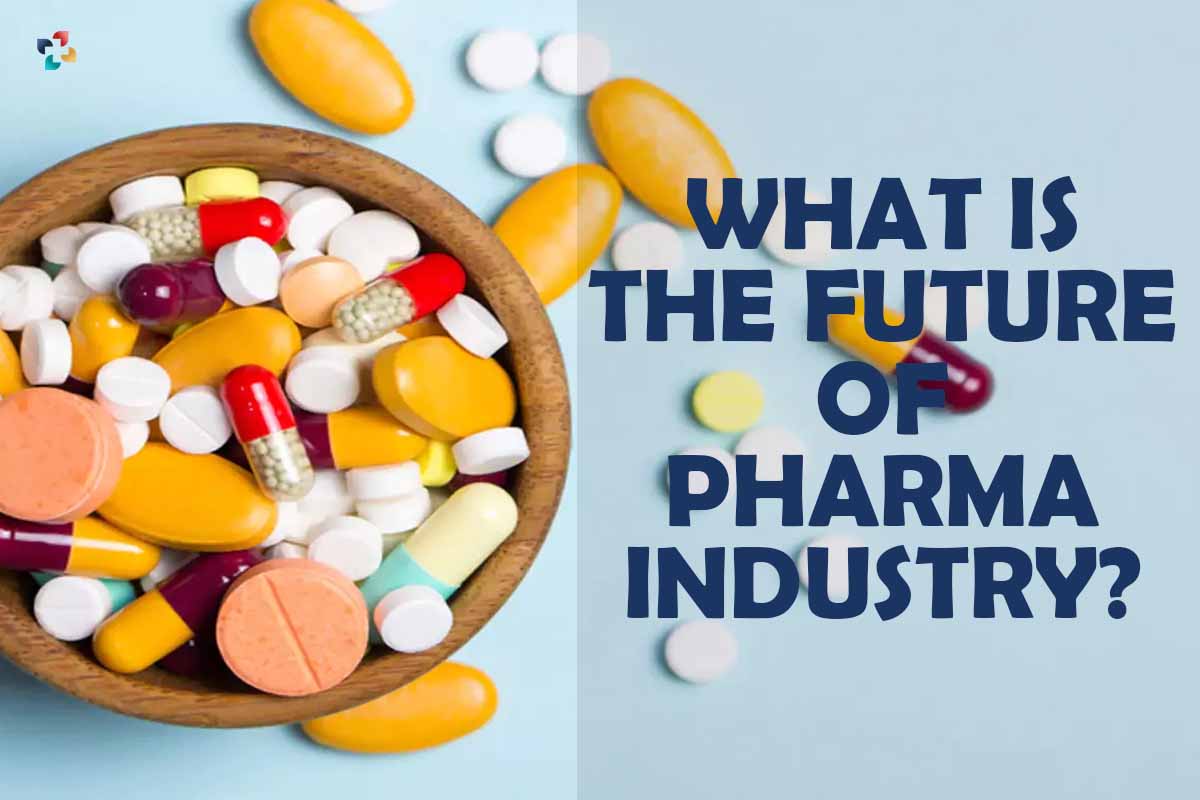In order to satisfy the requirements of a world that are expanding at a quick rate, the pharmaceutical business is a dynamic area that is always shifting and adapting. Over the course of the last several years, we have seen enormous improvements in technology, research and development, and the delivery of healthcare, all of which have had a big influence on the pharmaceutical sector and also the Future of the Pharma Industry.
We may anticipate seeing many more shifts and developments in the years to come, all of which will have a significant impact on how the pharmaceutical sector develops in the years to come.
The greater use of precision medicine is one of the most important shifts that the pharmaceutical business is likely to see in the years to come. This is one of the most significant developments that we can anticipate seeing. Precision medicine is a method of treating illness that takes into consideration an individual’s unique genetic make-up as well as their lifestyle and the environment in which they live.
We may anticipate that in the not-too-distant Future of the Pharma Industry, additional treatments will be created that can be adapted to individual genetic profiles. This will result in a significant increase in the drugs’ efficiency as well as a reduction in the likelihood that they will cause adverse effects.
The rising use of digital technology is another shift that we should anticipate seeing in the pharma sector in the not-too-distant Future of the Pharma Industry. The process of developing new drugs is already being made more efficient with the use of digital technologies such as artificial intelligence, machine learning, and analytics on large amounts of data.
We can anticipate that in the not-too-distant future, increasingly sophisticated digital technologies will be used to simplify the steps involved in the process of developing new drugs, enhance the precision of clinical tests, and make it simpler for both medical professionals and patients to obtain the information they require.
In addition to this, it is anticipated that the pharmaceutical business would place a greater emphasis on environmentally responsible practices and sustainable practices. Consumers are placing a greater emphasis on the use of environmentally friendly chemistry and manufacturing techniques, and analysts anticipate that these practices will play an increasingly important role in the pharmaceutical business in the years to come.
This involves the use of renewable energy, the reduction of waste and carbon footprint, and the use of materials that are environmentally friendly in the manufacturing of pharmaceuticals.
The Future of Healthcare Industry delivery is intricately connected to the Future of the Pharma Industry. Because it is anticipated that the population of the globe will continue to rise, there will be an increase in the need for medical services. In order to satisfy this need, we may anticipate a growth in the use of telemedicine, home health monitoring, and other kinds of healthcare delivery that take place at a distance.
These technologies will make it much simpler for individuals to receive healthcare services, regardless of where they are located, and will significantly increase the efficiency of the existing healthcare system.
These 3 Trends Lead To the Future of the Pharma Industry;
1. Making your way through the “new normal”
Due to the necessity to carry out several vaccination programs, the COVID-19 pandemic has placed exceptional strains on global healthcare resources. This is because of the need to contain the disease quickly.

In point of fact, it is anticipated that worldwide COVID-19 incremental investment would reach $251 billion between the years 2021 and 2026. However, now that the early efforts for developing vaccines have been created, the sector is shifting its focus to recovery and the process of returning to the previous normal.
2. The significance of maintaining continuity in the supply chain
One thing that has been forcefully emphasized as a result of the pandemic is the idea that supply chains may be put in great danger when there is an excessive dependence on a region that may be susceptible to disruption.

In the United States, for example, generic products account for ninety percent of all prescriptions filled, but approximately eighty-seven percent of active pharmaceutical ingredient (API) facilities are located outside of the country. This poses a potential threat of restricted access to vaccines and medications.
3. A transition from curative measures to preventative measures
It is abundantly evident that healthcare policies need to place an emphasis on disease prevention rather than disease treatment if they are to be sustainable over the long run.
The treatment of those who are already ill and the development of vaccines for infectious diseases will no longer be the primary focus of innovation; rather, it is anticipated that the emphasis will shift to prevention and the investigation of the potential utility of vaccines in the treatment of non-communicable diseases, such as certain types of cancer.
Last but not least, in the not-too-distant Future of the Pharma Industry, we should anticipate an increase in the level of cooperation that exists between the healthcare business, the government, and the pharmaceutical industry.
It will be vital to collaborate in order to manage the complex healthcare difficulties that we face today, such as the opioid crisis and the growing expense of healthcare. These challenges can only be addressed by working together.

By collaborating, the pharmaceutical sector, the government, and healthcare professionals will be able to come up with fresh and original solutions to these problems, which will ultimately lead to an improvement in the health of the population as a whole and the Future of the Pharma Industry.
In conclusion, the pharmaceutical business is a quickly growing area that is continually changing to suit the needs of a rapidly advancing world. This change is necessary in order for the pharmaceutical industry to remain competitive.
It is reasonable to anticipate that the pharmaceutical sector will undergo even more transformations and technological advances in the not-too-distant future. Among them are the growing applications of precision medicine, digital technology, sustainability, healthcare delivery, and collaborative efforts between the pharmaceutical sector, the government, and healthcare providers.
The efficiency of the pharmaceutical sector will vastly increase as a result of these developments, which will also have a positive impact on the health of the general population and the Future of the Pharma Industry.
Also Read: What Does the Future Hold for the Pharma Industry?







